With the Maharashtra Navnirman Sena calling for a state-wide ban on a Pakistani film’s release, we speak to some filmmakers on such political interference...
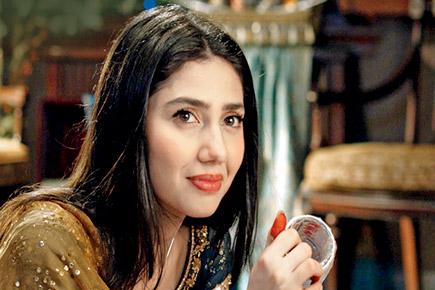
Mahira Khan
Mahira Khan's introduction to the Maharashtra audience has to wait a little longer. The Pakistani actress, who has been paired opposite Shah Rukh Khan in 'Raees', was all set to clash with Salman Khan at the box-office tomorrow, but her film, Bin Roye, will not be screened here. For, the Maharashtra Navnirman Sena (MNS) has threatened to vandalise theatres if the distributor screens the movie in the state. The political outfit objected to the proposed release stating that Pakistan has been sponsoring terror attacks on the country, especially in Mumbai, and committing ceasefire violations as well. "Moreover, Pakistan does not allow Indian artistes to work in Pakistan," MNS leader Amay Khopkar reportedly mentioned in his letter to the distributor.
ADVERTISEMENT
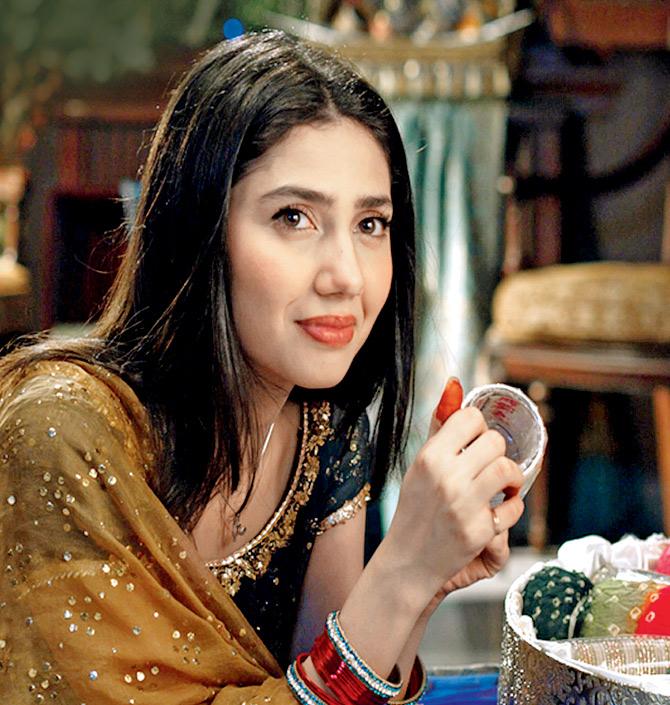
Mahira Khan stars in 'Bin Roye', which will not hit the big screen here following threats from the MNS
These threats have not gone down well with the local film fraternity which feels that the ban is unacceptable besides being unfair on the audience. Onir says, "It is unfair that a film approved by the film certification board in India is banned by a political party. There should be a mandate from the Supreme Court stating that the state should provide security and ensure the release of films. The idea (of allowing Pakistani films to release here) is to build bridges and not create walls between two countries constantly."
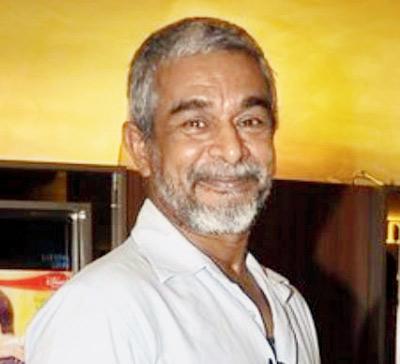
Rahul Dholakia, who is directing Mahira in her Bollywood debut film 'Raees', shares similar sentiments on the ban. "It is ridiculous for political parties to prevent the release. They should be focussing on more important issues like farmer suicides in the state. The idea of being a political party does not mean that you should break bridges; it means you should build bridges, create an environment of freedom and not act as a bully or extortionist. The state government should take them to task and ensure police protection around theatres so that the film can release."
In October last year, ceasefire violations by Pakistan along the Jammu and Kashmir border found a resonance in Bollywood with the Bharatiya Janata Party threatening to block the release of 'Kill Dil', which starred Pakistani actor, Ali Zafar, alongside Govinda, Ranveer Singh and Parineeti Chopra.
Shashanka Ghosh, who worked with Pakistani heartthrob Fawad Khan last year for Khoobsurat, says, "I don't think it (banning a movie) is fair unless the film is politically or religiously jingoistic. I have no clue how to deal with this issue apart from the usual lobbying."
Other filmmakers like Sanjay Puran Singh Chauhan finds the decision of banning a creative art in any form intimidating. "I firmly believe that when an autonomous body is already in place and set by the government to make such decisions (of releasing a film), any political interference overlapping its decision and prudence is completely intolerable. Had 'Bin Roye' been allowed to release in Maharashtra, it would have only strengthened Indo-Pak relations," he says.
Chauhan adds that after a longstanding ban on Indian films, Pakistan has allowed the release of Bollywood films there since 2008 with suggested cuts and consequently, films made here have lured people across the border and "helped our film industry add to its business". He goes on to say, "After years of bitterness, a sense of liberalism can be felt in both nations in connection of the exchange of cinema. If we hinder such efforts, we must be prepared for ban on ourcinema too in Pakistan. I am sure that our people too would love to watch their films just like they enjoy our cinema. The political parties might not understand the feeling a filmmaker goes through with such bans. On one hand we talk about banning their films here and on the other hand we openly watch their soaps on Indian television. What is it if not just sheer hypocrisy?"
Offering a suggestion to radical political parties, the filmmaker asserts that they ought to look at films as a medium of exchange of views, talent, technology, ideas and even emotions. "Only if we could be a little open-minded, or, rather open hearted, and not take such baseless steps… It is sad and disheartening. And as a cinema lover and filmmaker, I see my basic rights under jeopardy with such decisions," laments Chauhan.
They bore the brunt too...
>> 'Chennai Express' (2013)
MNS threatened to disrupt the release of this Shah Rukh Khan-starrer when the makers demanded prime time slot in single screen theatres across state.
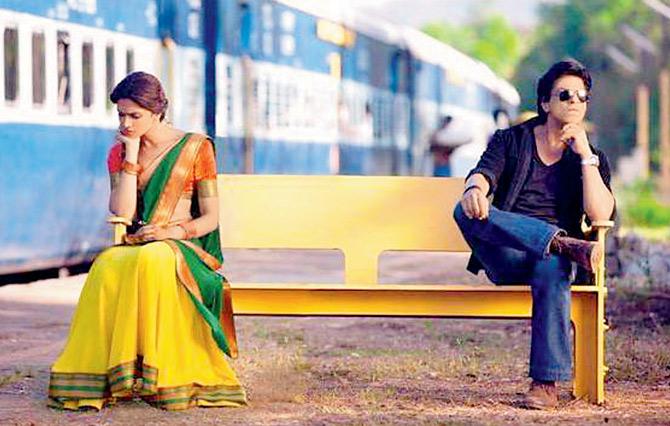
Deepika Padukone and Shah Rukh Khan in 'Chennai Express'
The slot was apparently allotted to Marathi films. The party members felt the film would eat into the business of the regional industry as Marathi film 'Duniyadari' was running successfully in theatres. A compromise was reached after director Rohit Shetty met MNS chief Raj Thackeray.
>> 'Ready' (2011)
The South Indian Film Artiste Association blocked the release all films featuring Asin, including 'Ready', after she shot in Sri Lanka.

Salman Khan and Asin in Ready
The association was against the idea of Indian actors going to Lanka as they felt that Tamilians were mistreated in the island country. Earlier, Salman Khan's films were also blocked for a brief period when he visited Sri Lanka for an awards ceremony.
>> 'My Name is Khan' (2010)
Shiv Sena workers had threatened to disrupt the shows of this film after the star expressed frustration over not a single Pakistani player being bought at the auction for IPL 3.
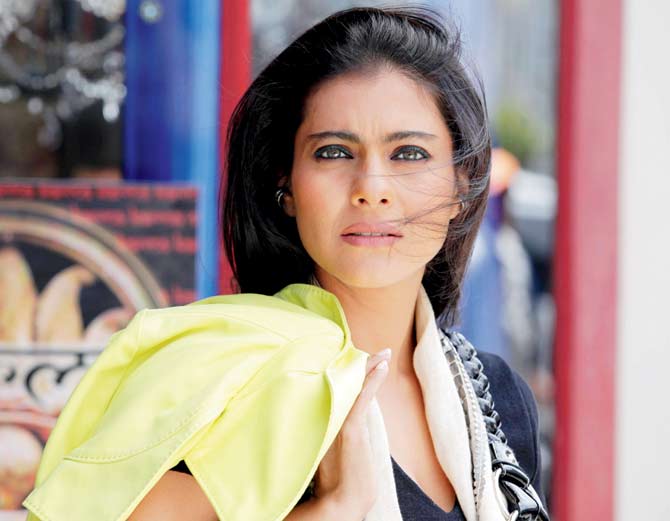
Kajol in 'My Name Is Khan'
However, the distributor went ahead with the release amidst security.
>> 'Raavan' (2010)
The film, which starred Abhishek and Aishwarya Rai Bachchan, released in Hindi and Tamil simultaneously. It met with fierce opposition in Sri Lanka as the lead pair as well as Amitabh Bachchan had earlier boycotted an awards function in that country. The protestors reportedly torched theatres to mark their protest.
>> 'Fanaa' (2006)
The Aamir Khan-Kajol starrer was banned in Gujarat since the actor was opposing the construction of Narmada Dam in the state then.
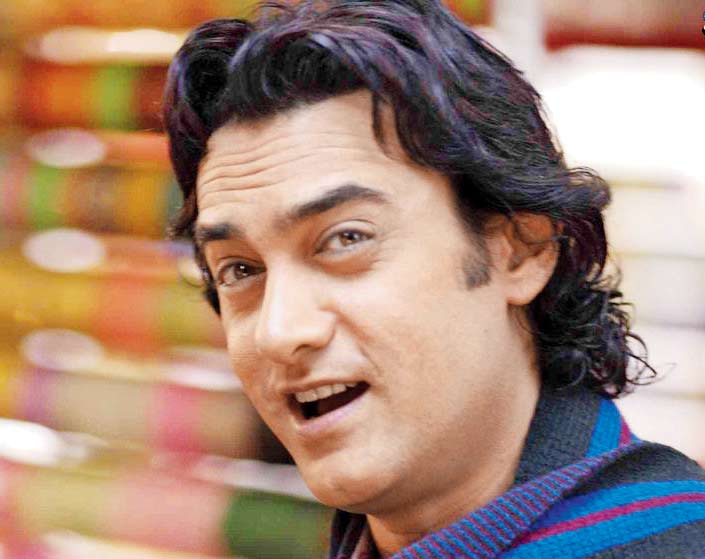
Aamir Khan in 'Fanaa'
Apparently, the Bhartiya Janta Party had been upset over Aamir's alleged remarks against the then chief minister Narendra Modi over the 2002 Godhra riots.
 Subscribe today by clicking the link and stay updated with the latest news!" Click here!
Subscribe today by clicking the link and stay updated with the latest news!" Click here!






